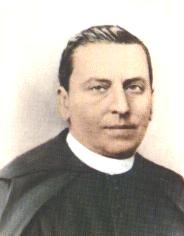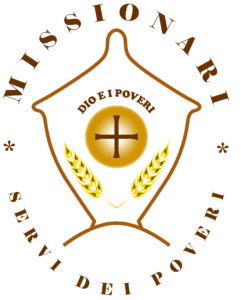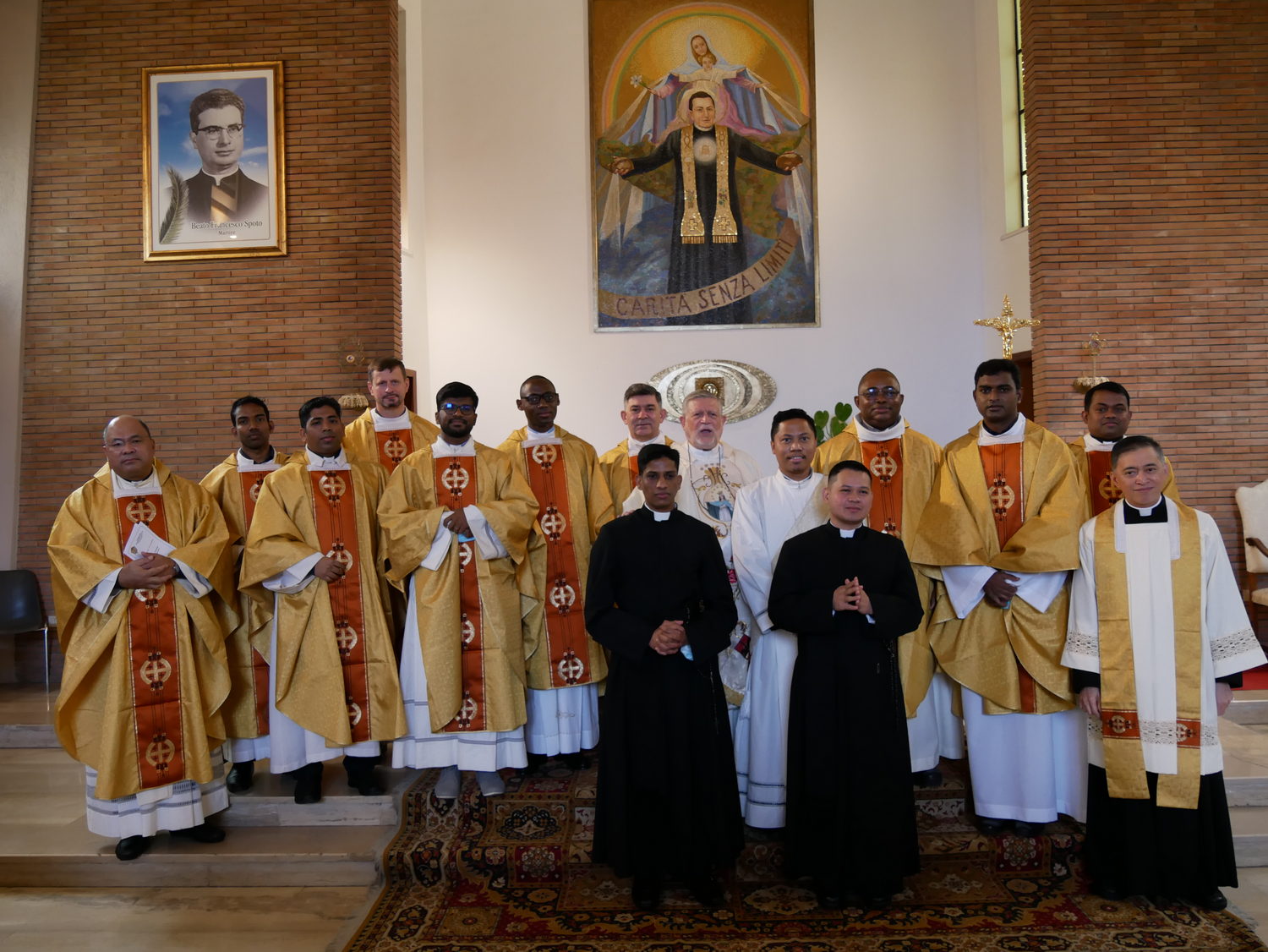Mission and Charity: The Congregation of the Missionary Servants of the Poor
The Congregation of the Missionary Servants of the Poor is a religious institute founded by Blessed Giacomo Cusmano in Sicily in 1887. This congregation, with its deep commitment to the poor and needy, embodies a charism of service that is intertwined with the Vincentian tradition.
History of the Congregation
The Congregation of the Missionary Servants of the Poor was born in Palermo in 1887 when Giacomo Cusmano, a young priest with a strong desire to serve the needy, initiated a charitable work for the poor and orphans. As early as 1867, Cusmano had opened a home for abandoned children, but his vision expanded with the founding of the congregation, aimed at forming a community of missionaries dedicated to serving the poor.
In 1889, Cusmano obtained ecclesiastical approval for the congregation, which quickly expanded. The Missionary Servants of the Poor engage in various charitable works, including assisting the sick, educating youth, and providing shelter for the needy. The congregation has spread throughout Italy and abroad, establishing missions in countries such as France, Mexico, Brazil, Uganda, the Democratic Republic of the Congo, India, and the Philippines, where they continue their charitable and supportive work.
The Spirituality of the Missionary Servants of the Poor
The spirituality of the Missionary Servants of the Poor is deeply rooted in the example of Jesus Christ and His love for the poor. The congregation is committed to living the Gospel through works of mercy and service. The congregation’s motto, “To Serve the Poor,” encapsulates its primary goal: to see Christ in the needy and act accordingly.
Cusmano’s spirituality is characterized by a strong contemplative dimension coupled with action. Missionaries are invited to maintain a balance between prayer and social commitment, following the example of Saint Vincent de Paul, who dedicated his life to serving the marginalized. The spiritual formation of the congregation’s members is based on a life of prayer, reflection, and social engagement to develop a Christian conscience and genuine solidarity toward the poor.
Giacomo Cusmano: The Founder
 Giacomo Cusmano was born in Palermo on January 15, 1834, into a modest family. From a young age, he showed a strong desire to help the poor and dedicate himself to serving others. After completing his theological studies, he was ordained a priest in 1857. His vocation was concretized with the opening of the first shelter for orphans, an initiative that testified to his love for the most vulnerable.
Giacomo Cusmano was born in Palermo on January 15, 1834, into a modest family. From a young age, he showed a strong desire to help the poor and dedicate himself to serving others. After completing his theological studies, he was ordained a priest in 1857. His vocation was concretized with the opening of the first shelter for orphans, an initiative that testified to his love for the most vulnerable.
Cusmano was a man of deep spirituality, and his life was marked by an intense prayer life. Through his works, he sought to respond to the needs of the society of his time, confronting poverty, illness, and abandonment. He died on April 14, 1888, and was beatified by Pope John Paul II on October 7, 1990, officially recognizing his virtue and service to the poor.
The Logo of the Congregation
 The logo of the Missionary Servants of the Poor is composed of numerous elements that have a precise meaning.
The logo of the Missionary Servants of the Poor is composed of numerous elements that have a precise meaning.
- The drawing intends to represent Our Lady of Mercy opening her arms in a gesture of love and protection towards our Congregation. Father Giacomo introduces us to Mary as “the Great Mother of God, our first Superior and our Mother, who defends us from the snares of hell…” (LeA I/1, p. 235) and recommends that we go to Her school “to learn the perfect imitation of Jesus our life” (LeA II, p. 563). At the center is the world: as Christians and even more so as missionaries, we are called to proclaim the Good News of Jesus Christ to the poorest: “Let us run to where misery presents itself most needfully, spying on all the ills of the human race so that no one may be left without comfort” (PeC p. 9), “propagating the faith through charity” (Filippello II/1, p. 257).
- The Work of the Morsel of the Poor has its roots in the Eucharist: “This mysterious name, under which a work for the benefit of the unfortunate was born, came from the idea of the Holy Eucharist, the Sacrament of the Divine Love. This mysterious name, under which a work for the benefit of the unfortunate was born, came from the idea of the Holy Eucharist, the Sacrament of divine love by which Jesus Christ, making himself the bread of eternal life and communicating himself in the fraction of it to sinners who are in the true sense the poor because they are deprived of eternal goods, comes to seek them out, feeding them of every strange and harmful appetite and nourishing them with the true nourishment that gives life and eternal life” (Filippello II/2, p. 226).
- The cross is the sign of the passion and death of our Lord Jesus Christ and of His love for humanity. The Founding Father said: “fortunate are the souls who live in the shadow of the cross!” (LeA I/1, p. 543) and often repeated the words: “The cross leads to Heaven” (Ibid., p.111). The Greek cross, symbol of the four cardinal points, reminds us of the universality of the mission to live and bear witness to the Gospel throughan embrace of the option for the poor and the marginalized.
- The ears of wheat are a call to unity and communion in diversity: only if each grain of wheat is delivered into the hands of the Baker can it become food for others. Father Giacomo wished to establish a community of people who love one another and who nurture love for the poorest sacrament of Jesus Christ: “Oh! How sweet and sweet will it be to live in community, when, by the spirit of true observance, each person who makes up the community will be a member of that unity which forms the mystical body of Jesus Christ!” (LeA I/1, p. 602).
Relationship with Saint Vincent de Paul and the Vincentian Charism
The Vincentian charism, inspired by the figure of Saint Vincent de Paul, has profoundly influenced the foundation and mission of the Missionary Servants of the Poor. Saint Vincent, known for his love for the poor and his dedication to serving the marginalized, is a model of Christian life and active charity. Cusmano, following his example, established a congregation that aims to continue his work by placing the poor at the center of the ecclesial mission.
The Missionary Servants of the Poor draw inspiration from Vincentian methods of addressing poverty, emphasizing the importance of personal encounters with the needy and promoting human dignity. Through their works, they seek to embody the values of justice, solidarity, and brotherhood, which form the basis of Vincentian spirituality.
Global Presence
Today, the Congregation of the Missionary Servants of the Poor is active in various nations, carrying out its mission of service and charity. They have established foundations in Italy, France, Mexico, Brazil, Uganda, the Democratic Republic of the Congo, India, and the Philippines. Each community is committed to responding to the specific needs of the local population, adapting their works and activities to different social and cultural realities.
Their presence in these countries is a tangible sign of the universality of the congregation’s mission, which is not limited to a single geographical location but embraces the diversity and universality of the evangelical message. The missionaries work in synergy with other local institutions and organizations to confront the challenges of poverty and suffering, testifying to the love of Christ in the places where they are called to serve.
— – —
The Congregation of the Missionary Servants of the Poor, founded by Blessed Giacomo Cusmano, continues to be a shining example of charity and service in the contemporary world. Its history, spirituality, and connection to the Vincentian charism highlight the importance of responding to the needs of the poor and marginalized.
Through concrete action and spiritual commitment, the missionaries seek to embody the message of the Gospel, making their lives an offering of service to the most vulnerable. In a world where poverty and injustice remain present, the work of the Missionary Servants of the Poor continues to be a beacon of hope and a call to live a life of service and love.
Contact:
- Address:
- Telephone: +39
- Email: info@servideipoveri.org
- Website: https://www.servideipoveri.org/
Tags:








0 Comments